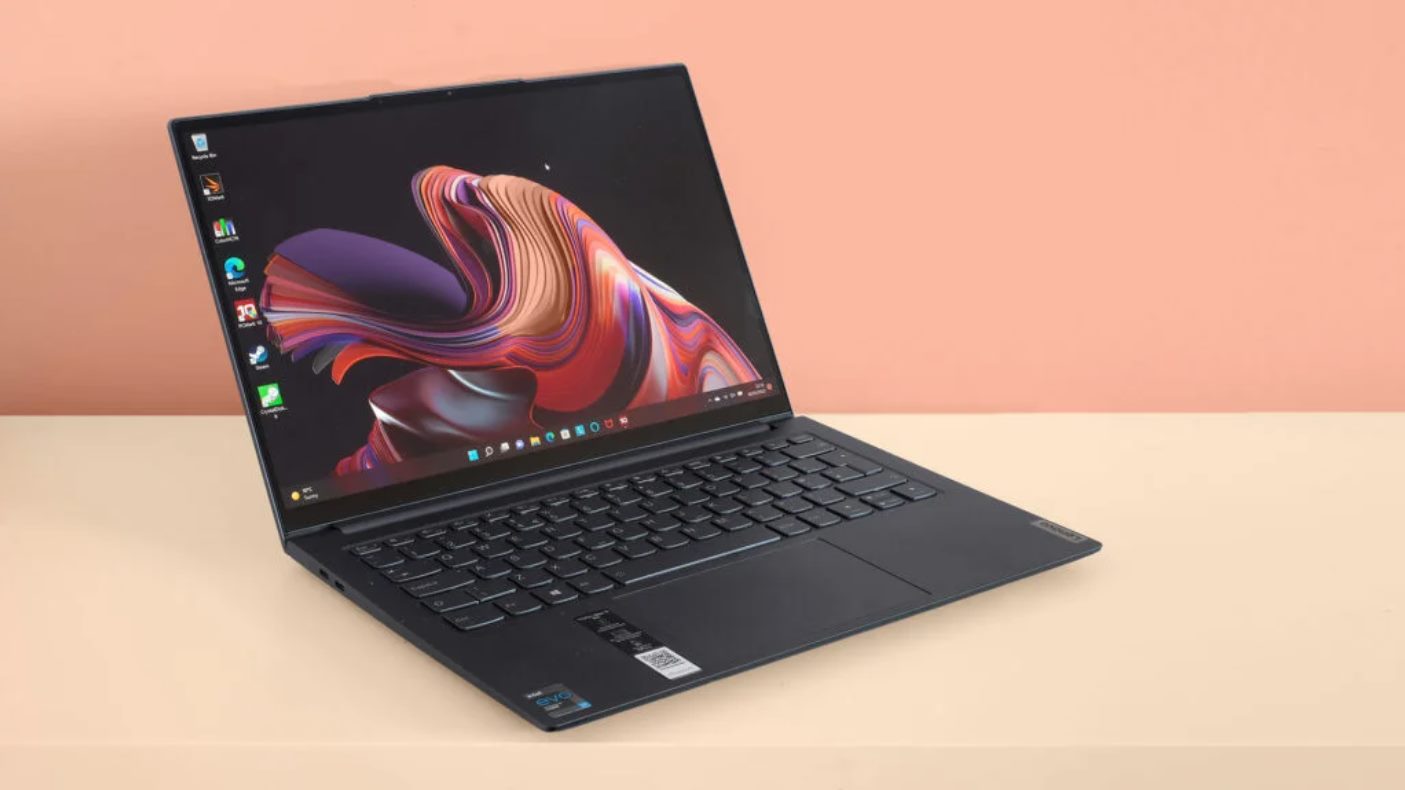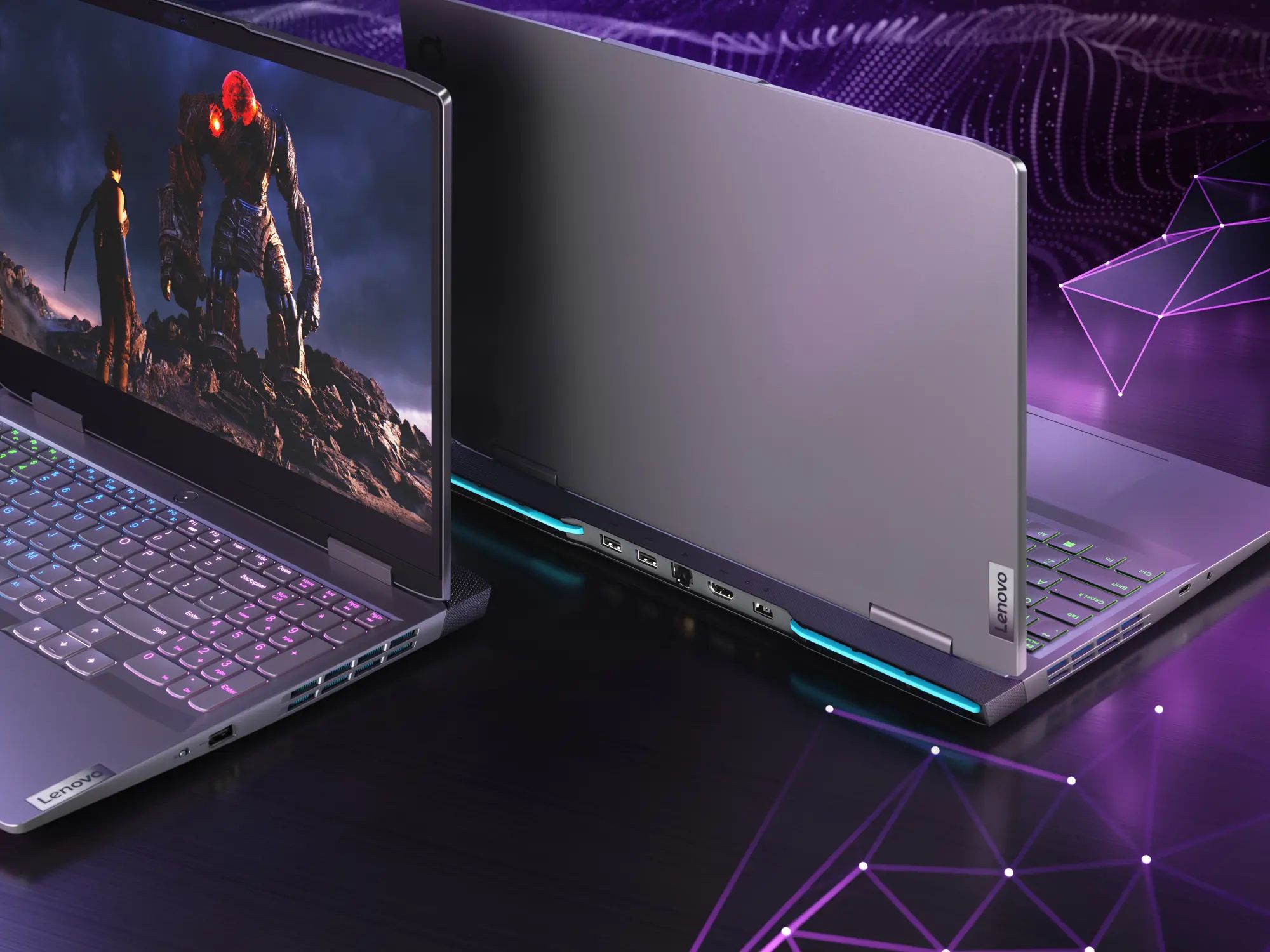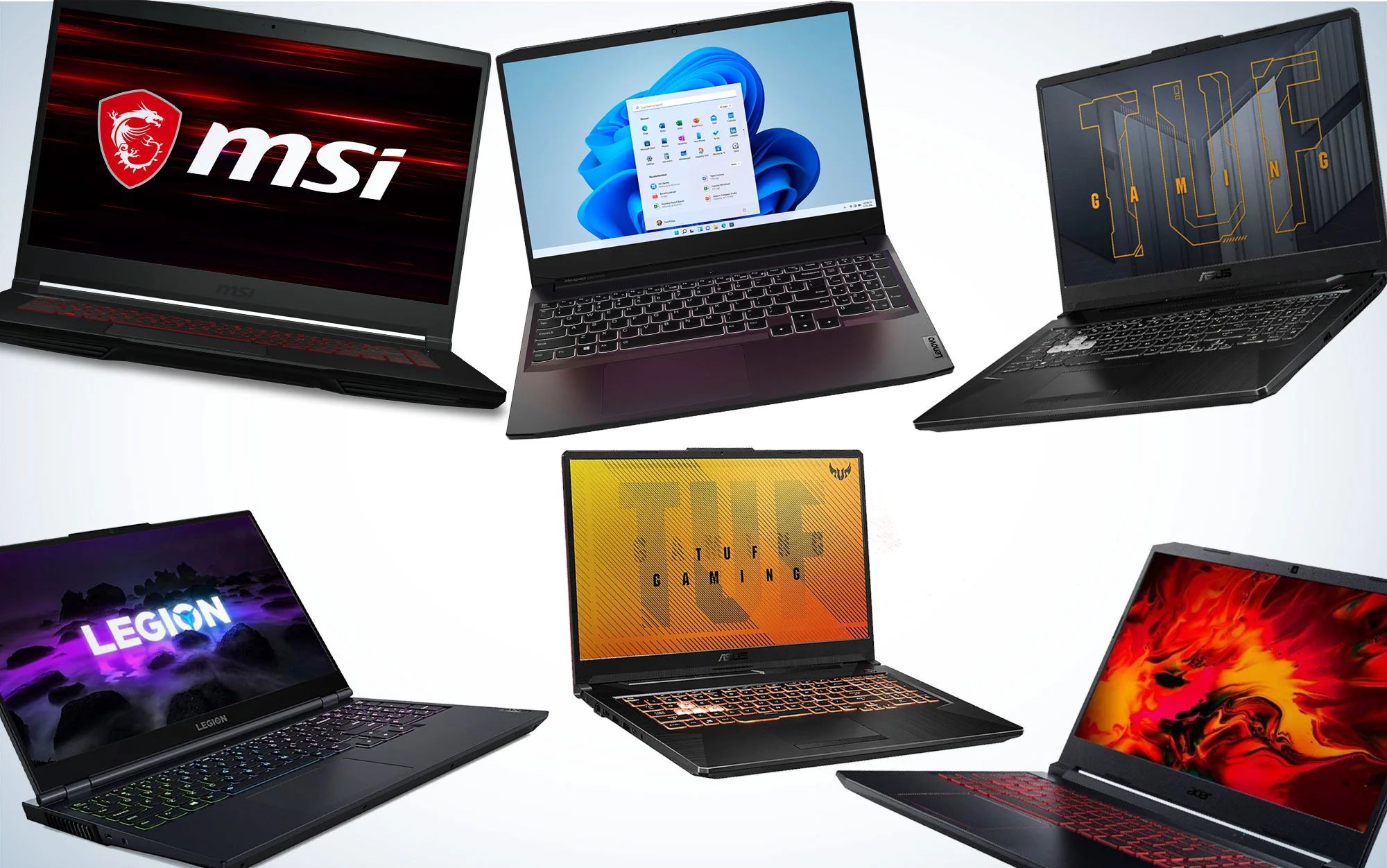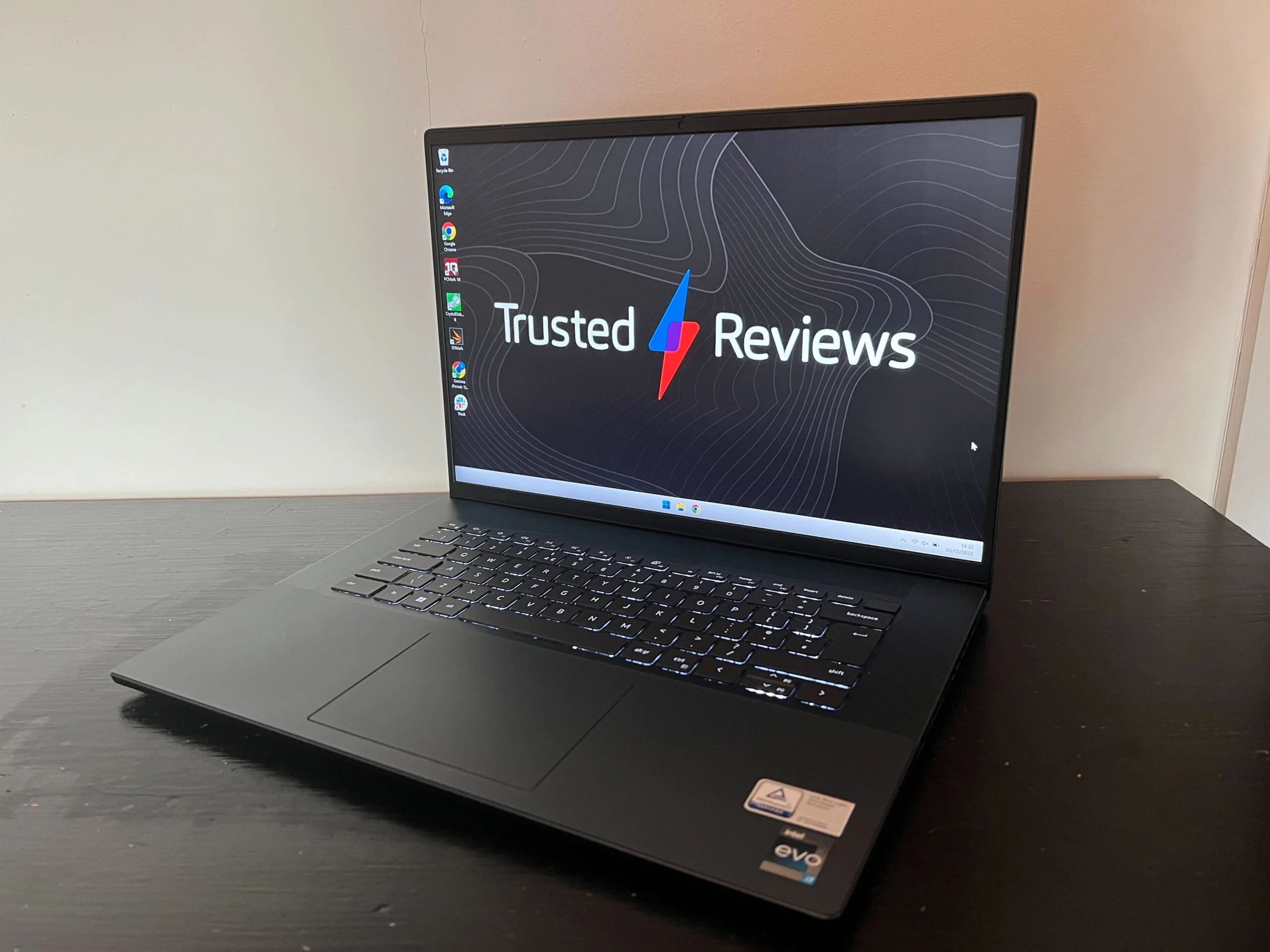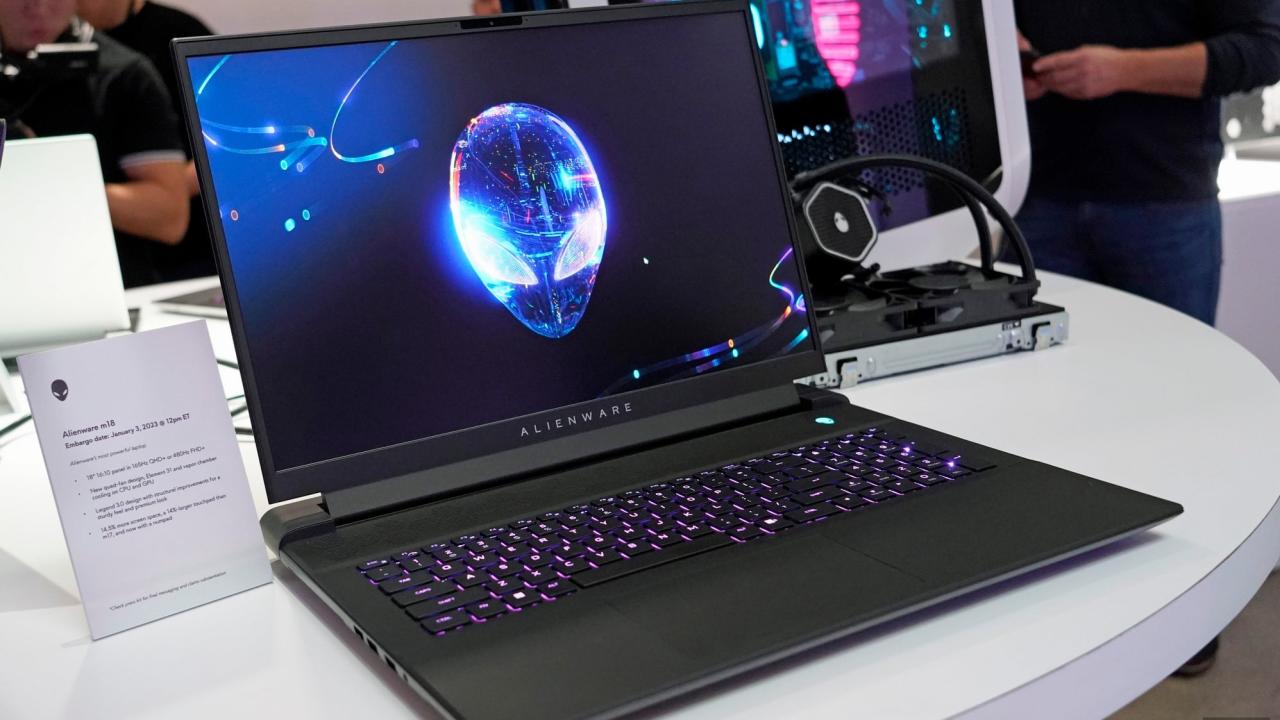Processor
The processor is the brain of a gaming laptop and plays a crucial role in determining its performance. It handles all the calculations and instructions necessary to run games smoothly. When it comes to gaming, a good processor is essential for fast and efficient gameplay.
There are two main options when it comes to processors: Intel and AMD. Both offer high-performance processors specifically designed for gaming laptops. Intel’s Core i5 and i7 series, as well as the more advanced Core i9, are popular choices among gamers. AMD’s Ryzen series processors are also highly regarded for their strong gaming capabilities.
When choosing a processor for your gaming laptop, consider factors such as clock speed, number of cores, and cache size. A higher clock speed allows for faster processing, while multiple cores can handle multiple tasks simultaneously. A larger cache size improves the processor’s ability to access frequently used data, which is important for gaming performance.
Additionally, newer processor generations tend to offer better performance and efficiency. For example, the 10th and 11th generation Intel Core processors, as well as the AMD Ryzen 5000 series, feature advanced technology that delivers impressive gaming performance.
It’s worth noting that some gaming laptops offer overclocking capabilities, which allow you to increase the clock speed of the processor for even better performance. However, this can also generate more heat and may require additional cooling solutions.
In summary, when choosing a gaming laptop, pay close attention to the processor. Look for a high-performance processor from trusted brands like Intel or AMD, with a good balance of clock speed, cores, and cache size. Consider the latest generation processors for the best gaming experience.
Graphics Card
The graphics card is one of the most important components in a gaming laptop, as it is responsible for rendering images and graphics in games. A powerful graphics card can greatly enhance your gaming experience by delivering stunning visuals and smooth gameplay.
When it comes to graphics cards, there are two main players in the market: NVIDIA and AMD. Both offer a range of options for gaming laptops, with varying levels of performance.
NVIDIA’s GeForce RTX series is highly regarded among gamers due to its advanced features and exceptional performance. These cards utilize ray tracing technology, which adds realistic lighting and shadows to games, creating a more immersive experience. The higher-end models, such as the RTX 3080 or RTX 3070, are capable of running the latest games at high settings with ease.
AMD’s Radeon RX series is also a popular choice, offering excellent performance and value for money. The latest Radeon RX 6000 series graphics cards deliver impressive performance and support features like ray tracing and variable rate shading.
When choosing a graphics card for your gaming laptop, consider factors such as VRAM (Video Random Access Memory), clock speed, and CUDA cores (in the case of NVIDIA cards). Higher VRAM allows for smoother performance at higher resolutions, while clock speed determines the card’s processing power. CUDA cores, on the other hand, affect the card’s ability to handle complex calculations.
It’s important to note that graphics cards generate a significant amount of heat while gaming. Therefore, it’s crucial to have an adequate cooling system in your laptop to prevent overheating and maintain optimal performance.
To summarize, invest in a powerful graphics card from reputable brands like NVIDIA or AMD to ensure smooth gameplay and visually stunning graphics. Consider the latest models that support advanced features like ray tracing for an immersive gaming experience.
RAM
RAM (Random Access Memory) plays a crucial role in the performance of a gaming laptop. It determines how much data the laptop can handle at a given time, which directly affects multitasking capabilities and game loading times.
When it comes to RAM, the more, the better. Most modern gaming laptops come with at least 8GB of RAM, but for optimal gaming performance, it’s recommended to have 16GB or more. This allows for smoother gameplay, faster loading times, and the ability to run multiple applications and processes simultaneously without any noticeable lag.
In addition to the amount of RAM, also consider the RAM speed (measured in megahertz, MHz) when choosing a gaming laptop. Higher RAM speeds offer faster data access, which can lead to improved game performance. However, keep in mind that the benefits of higher RAM speeds might be minimal compared to the increase in cost.
Another consideration is the type of RAM technology used. DDR4 is the most common and widely supported type of RAM in gaming laptops, offering faster data transfer rates and better power efficiency compared to older DDR3 technology.
In some cases, gaming laptops offer the option to upgrade the RAM in the future. This can be a cost-effective solution if you’re on a tight budget and want to start with lower RAM capacity initially, with the option to upgrade later when needed.
To summarize, aim for a gaming laptop with at least 16GB of RAM for optimal performance. Consider the RAM speed and technology, but remember that higher speeds may not always provide significant benefits. Also, keep in mind the option for future RAM upgrades if needed.
Storage
When it comes to gaming, having sufficient storage is essential to store your game library, save files, and other multimedia content. There are two main types of storage options available in gaming laptops: solid-state drives (SSD) and hard disk drives (HDD).
SSDs are the preferred choice for gaming laptops due to their faster read and write speeds compared to HDDs. They offer quicker game load times, faster file transfers, and overall snappier system performance. It’s recommended to choose a gaming laptop with an SSD as the primary storage option for a smoother gaming experience.
However, SSDs can be more expensive per gigabyte compared to HDDs. Therefore, gaming laptops often come with a combination of both types, with a smaller SSD for the operating system and frequently played games, and a larger HDD for additional storage space.
For optimal gaming performance, it’s ideal to have a gaming laptop with a large SSD capacity of at least 512GB or more. This allows you to install multiple games and have enough space for system updates and other software.
Another consideration is NVMe (Non-Volatile Memory Express) technology, which allows for even faster data transfer speeds compared to traditional SATA SSDs. NVMe SSDs offer improved game load times and better overall system performance.
In summary, choose a gaming laptop with an SSD as the primary storage option for faster load times and snappier performance. Aim for a large capacity SSD of at least 512GB or more to accommodate your game library and other software. Consider NVMe SSDs for even faster data transfer speeds.
Display
The display plays a crucial role in the gaming experience, as it is the window through which you interact with your games. When choosing a gaming laptop, consider the following factors that contribute to an immersive display:
1. Size: Gaming laptops typically come in sizes ranging from 14 to 17 inches. A larger display can provide a more immersive gaming experience, but it may also make the laptop bulkier and less portable.
2. Resolution: Opt for a gaming laptop with a high-resolution display, such as Full HD (1920×1080) or even QHD (2560×1440) for sharper visuals. A higher resolution allows you to see more details in games, enhancing the overall gaming experience.
3. Refresh Rate: A higher refresh rate provides smoother motion in games, reducing motion blur and making fast-paced games more enjoyable. Look for gaming laptops with a refresh rate of at least 144Hz or higher for optimal gaming performance.
4. Response Time: Lower response times ensure that the display can keep up with fast-paced movements without causing ghosting or blurring. A response time of 5ms or lower is ideal for gaming.
5. Panel Type: Different panel types offer variations in color accuracy, contrast, and viewing angles. IPS panels generally provide better color reproduction and wider viewing angles, making them ideal for gaming laptops.
6. G-Sync or FreeSync: These technologies synchronize the refresh rate of the display with the GPU, reducing screen tearing and providing smoother gaming experiences. G-Sync is supported by NVIDIA graphics cards, while FreeSync is supported by AMD graphics cards.
Remember, a good display will enhance your overall gaming experience, allowing you to fully appreciate the graphics and details of the games you play. Consider your preferences and gaming requirements when choosing a gaming laptop with an impressive display.
Cooling System
The cooling system is an essential component of a gaming laptop as it helps to regulate the temperature and prevent overheating. Efficient cooling is crucial for maintaining optimal performance during intense gaming sessions. When choosing a gaming laptop, consider the following aspects of the cooling system:
1. Thermal Design: Look for a gaming laptop with a well-designed thermal system that features heat pipes, heat sinks, and multiple fans. Heat pipes help to transfer heat away from the CPU and GPU, while heat sinks dissipate the heat. Multiple fans ensure better airflow and cooling efficiency.
2. Fan Speed and Noise: Consider the fan speed and noise level of the laptop’s cooling system. Gaming laptops often have different fan profiles that can be adjusted based on performance or noise preferences. Ideally, look for a laptop that offers a balance between cooling performance and quiet operation.
3. Air Intake/Exhaust: Check the placement of air intake vents and exhaust ports. It’s essential to have proper ventilation to allow cool air to enter and hot air to exit the laptop effectively.
4. Advanced Cooling Features: Some gaming laptops come equipped with additional cooling features like vapor chamber cooling or liquid metal thermal compounds. These advanced cooling technologies offer enhanced heat dissipation, resulting in better overall performance and lower temperatures.
5. Software Controls: Look for laptops that offer software controls to monitor and adjust the cooling system. This allows you to manually adjust fan speed or set performance profiles according to your gaming needs.
Proper maintenance of the cooling system is also important. Regularly clean the vents and fans to remove dust and debris that can restrict airflow and cause the system to heat up. Additionally, using a laptop cooling pad or stand can further improve air circulation and keep temperatures in check.
To summarize, a robust cooling system is essential for maintaining optimal performance and preventing overheating in a gaming laptop. Look for a well-designed thermal system, consider fan speed and noise levels, check air intake/exhaust placement, and explore advanced cooling features. Don’t forget to perform regular maintenance to keep your gaming laptop running cool and efficiently.
Keyboard and Trackpad
The keyboard and trackpad are essential components of a gaming laptop, as they directly contribute to your gaming experience and overall usability. When considering a gaming laptop, pay attention to the following aspects of the keyboard and trackpad:
1. Keyboard Design and Layout: Look for a gaming laptop with a comfortable and ergonomic keyboard design. A keyboard with full-sized keys and adequate spacing between them will make it easier to type and navigate during gameplay. Backlit keyboards with customizable lighting options are also popular among gamers, as they enhance visibility in low-light environments and add a stylish touch.
2. Mechanical vs. Membrane Keyboards: Mechanical keyboards are known for their tactile feedback and faster response times, which can provide a more satisfying typing and gaming experience. However, they tend to be noisier and more expensive. Membrane keyboards, on the other hand, offer a quieter typing experience and are generally more affordable.
3. Key Travel and Actuation Force: Key travel refers to the physical distance a key travels when pressed, while actuation force is the amount of pressure required to register a keystroke. Gamers often prefer keyboards with shorter key travel and lower actuation force, as they allow for faster and more responsive gameplay.
4. N-Key Rollover: N-key rollover (NKRO) is a feature that allows multiple keystrokes to be registered simultaneously. This is especially important in fast-paced games where multiple key combinations are required. Look for a gaming laptop that offers full N-key rollover or at least 6-key rollover to ensure accurate input recognition.
5. Trackpad Responsiveness and Accuracy: While most gaming is done with a mouse, a responsive and accurate trackpad is still important for everyday tasks and general navigation. Look for a trackpad that offers smooth movement, accurate cursor control, and support for multi-touch gestures.
Consider your own preferences and gaming needs when evaluating the keyboard and trackpad features of a gaming laptop. Some gamers might prefer to use external gaming keyboards and mice for better precision and comfort during gameplay, while others may prioritize a well-designed built-in keyboard and trackpad combination.
In summary, look for a gaming laptop with a comfortable and well-designed keyboard, considering factors like layout, key travel, actuation force, and N-key rollover. Evaluate the responsiveness and accuracy of the trackpad, but keep in mind that using an external gaming mouse is often preferred for precise gaming control.
Battery Life
The battery life of a gaming laptop is an important consideration, especially if you intend to use it on the go or in situations where a power outlet may not be readily available. While gaming laptops tend to consume more power due to their high-performance components, there are several factors that can affect battery life:
1. Battery Capacity: Pay attention to the battery capacity measured in Watt-hours (Wh) when choosing a gaming laptop. A larger battery capacity generally indicates longer battery life. Look for laptops with batteries that have capacities of 60Wh or higher for better performance.
2. Hardware and Settings: The power consumption of a gaming laptop largely depends on the components and settings used. Higher-performance processors and graphics cards generally consume more power. Adjusting settings like screen brightness and disabling unnecessary background processes can help extend battery life.
3. Usage Patterns: The battery life of a gaming laptop will vary depending on how the laptop is used. Running intensive games or applications will drain the battery faster than simple web browsing or document editing. It’s important to manage your usage and prioritize power-saving measures when necessary.
4. Battery Saver Mode: Many gaming laptops offer a battery saver mode, which adjusts system settings to conserve power. Enabling this mode can significantly extend battery life by reducing performance and limiting background processes.
5. External Factors: Environmental conditions, such as ambient temperature, can affect battery performance. Extreme heat or cold can cause the battery to discharge more quickly. Keeping the laptop in a moderate temperature environment will help maximize battery life.
It’s worth noting that gaming laptops are generally not known for long battery life compared to ultrabooks or business laptops. While improved battery technology has made some advancements, most gaming laptops will typically provide around 3-6 hours of battery life under normal usage conditions.
To maximize battery life, it’s recommended to have the laptop plugged in while gaming whenever possible. Additionally, having a spare battery or a portable power bank can provide extended gaming sessions on the go.
In summary, consider the battery capacity, usage patterns, power-saving settings, and external factors when assessing the battery life of a gaming laptop. Keep in mind that gaming laptops are designed for high-performance gaming rather than long battery life, so it’s essential to manage your expectations and plan accordingly.
Portability
Portability is an important factor to consider when choosing a gaming laptop, especially if you plan to take it with you on the go or travel frequently. While gaming laptops are generally larger and heavier than traditional laptops, there are several aspects that can influence their portability:
1. Size and Weight: Gaming laptops come in a range of sizes, typically ranging from 14 to 17 inches. Smaller laptops are generally more compact and easier to carry, but they may sacrifice some gaming performance. Consider your preference for screen size and balance it with your need for portability.
2. Build Quality and Durability: Look for a gaming laptop that has a sturdy build quality and is made of durable materials. This helps to ensure that it will withstand the rigors of travel and regular use without being easily damaged.
3. Thin Bezels: Laptops with thin bezels around the display take up less physical space and can result in a smaller overall footprint. This makes the laptop more compact and easier to carry, without sacrificing screen size.
4. Port Selection: Consider the ports available on the laptop. Having a variety of ports, such as USB, HDMI, and audio, allows for easy connectivity to external devices. This enhances the versatility and usability of the laptop, especially when traveling.
5. Battery Life: A longer battery life contributes to the portability of a gaming laptop. Being able to use the laptop for extended periods without relying on a power outlet is important when on the go.
6. Carrying Case: Investing in a good-quality carrying case or backpack designed specifically for gaming laptops can make transportation easier and provide extra protection.
While gaming laptops are not as portable as lightweight ultrabooks or tablets, advancements in technology have made them more travel-friendly than ever before. If portability is a priority, consider sacrificing some gaming performance for a smaller and lighter laptop that is easier to carry.
In summary, when evaluating the portability of a gaming laptop, consider the size and weight, build quality, thin bezels, port selection, battery life, and the availability of a suitable carrying case. Finding the right balance between performance and portability will ensure that you can take your gaming laptop with you wherever you go.
Connectivity Options
Connectivity options are an essential aspect to consider when choosing a gaming laptop. A variety of ports and wireless capabilities can greatly enhance the versatility and functionality of the laptop. Here are some important connectivity options to look for:
1. USB Ports: Multiple USB ports are essential for connecting peripherals such as gaming mice, keyboards, external hard drives, and other accessories. Look for laptops that offer a mix of USB 3.0 and USB-C ports to ensure compatibility with different devices.
2. HDMI or DisplayPort: These ports allow you to connect your gaming laptop to external displays, such as monitors or TVs, for a larger viewing experience. HDMI and DisplayPort offer high-definition video and audio output, making them ideal for gaming or multimedia purposes.
3. Ethernet Port: Although most gaming laptops support Wi-Fi connectivity, having an Ethernet port provides a more stable and reliable internet connection. This is especially important for online gaming, where a wired connection can help reduce latency and improve gameplay performance.
4. Audio Jacks: Look for laptops with headphone and microphone jacks for seamless audio connectivity. Dedicated headphone jacks offer better sound quality and prevent interference from other ports.
5. Wireless Connectivity: Wi-Fi compatibility is a must-have feature for online gaming and web browsing. Look for gaming laptops with the latest Wi-Fi standards, such as Wi-Fi 6 (802.11ax), for faster and more reliable wireless connections.
6. Bluetooth: Bluetooth connectivity allows you to connect wireless peripherals like gaming controllers, speakers, and headphones without the need for cables. Look for laptops with Bluetooth 5.0 or higher for improved range and connection stability.
7. SD Card Reader: An SD card reader can be convenient for transferring files or accessing data from digital cameras, smartphones, or other devices that use SD cards.
It’s also important to consider the availability and positioning of these connectivity options on the laptop. Easy access to ports and jacks, as well as having them positioned on the sides or back of the laptop, can provide a clutter-free gaming experience.
In summary, look for a gaming laptop that offers a variety of connectivity options, including USB ports, HDMI or DisplayPort, Ethernet, audio jacks, wireless connectivity (Wi-Fi and Bluetooth), and an SD card reader. These options ensure that you can seamlessly connect your peripherals, external displays, and other devices to enhance your gaming and multimedia experience.










